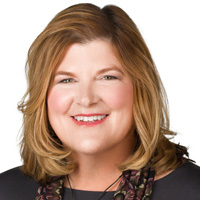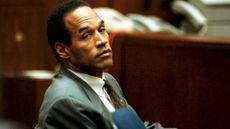Ready for a Career Checkup? Five Steps to Plan What’s Next
Asking yourself some pointed questions to figure out what you want and what you’re good at can bring more purpose and fulfillment to your professional life.


Let’s start with some good news. Despite recent headlines lamenting mass layoffs, rising stress levels, return-to-office politics and the risk of AI-powered automation, the majority of Americans remain satisfied with their jobs.
In fact, job satisfaction last year rose to its highest levels since the late 1980s. According to research from the Conference Board, “U.S. workers have never been more content.” More than 60% of workers are satisfied — up from just 42% during the Great Recession in 2010.
If you’re one of the employees in this happy majority, congratulations on finding fulfilling work and balance. And if you’re in the minority, remember that it’s never too late to pursue a new opportunity or improve the situation at your current employer.

Sign up for Kiplinger’s Free E-Newsletters
Profit and prosper with the best of expert advice on investing, taxes, retirement, personal finance and more - straight to your e-mail.
Profit and prosper with the best of expert advice - straight to your e-mail.
No matter where you are on your career journey, an annual “career checkup” is a great way to step back, reflect on your current situation and move forward with confidence and intention.
What is a career checkup?
In the same way you manage your personal health with a yearly physical and your financial health with regular reviews of your investments, a career checkup sets aside dedicated time to evaluate progress in your professional life.
For example:
- How satisfied are you with your current employment?
- Are you on track to reach your career goals?
- Is a new opportunity in your future?
Being proactive keeps your professional life in good health and ensures you’re ready for whatever comes next. Whether it’s time to negotiate a promotion, launch a job search, pursue a board of directors seat or even downshift as retirement nears, you can make sure your next move is thoughtful rather than reactionary.
Plan your next career move with these five steps
Here’s what the career checkup process involves. It’s key to finding a career that both meets your needs for income and provides fulfillment on a deeper level.
1. Reflect on your current situation.
Self-discovery is essential to positive outcomes. Start by setting aside some uninterrupted time for reflection.
Consider:
- What type of work really energizes you? What drains you?
- What’s positive and working well in your current role?
- What are the most important changes you’d like to make this year — either in your present employment or with a new position?
2. Find your purpose.
Next, prioritize what matters most to you. Figuring out where your values and personal passions intersect with the job market leads to higher job satisfaction and greater personal well-being.
Think about:
- What type of work do you find meaningful?
- When you are totally absorbed and lose track of time, what are you doing?
- What do you want to contribute to the world?
Drawing a pie chart that shows how you want to spend your time can also be helpful. Just as you spread your financial investments across many categories, where you invest your energy and skills should support what’s most important in your life. Consider how big the pie “slices” should be for things like family, recreation, volunteering, learning or travel, and if or where these priorities can overlap with your job responsibilities.
3. Identify your superpowers.
Superman and Wonder Woman aren’t the only ones with special talents — we all have amazing capabilities. Knowing yours will help you unlock new opportunities and stand out with hiring managers, recruiters and professional connections. Think about the unique value that you can bring to an organization.
- Where do you make the biggest impact?
- What do colleagues count on you for?
- When others describe you, what would they say you are “made to do”?
If you’re ready for a pivot in your career, such as shifting to a new industry, dialing back from full- to part-time employment or moving from executive leadership to board service, try to put your skills into a new perspective. Adding value doesn’t need to look or feel the same at all stages of your career.
4. Document your accomplishments.
As you think back over the previous year (or the arc of your career), consider your wins.
- What accomplishments are you most proud of?
- What are the peak experiences that you want to duplicate going forward?
Write them down, paying particular attention to specific results and outcomes where you made a difference at your company. These milestones should inform your next steps. They should also be at the heart of your LinkedIn profile, résumé and professional networking story.
Even if you decide to maintain the status quo in your career, save these tangible proof points for the future; they’ll save you time and fuel an impressive story when you next update your professional materials.
5. Visualize new experiences.
Finally, look back across all your career checkup activities for recurring themes and “a-ha” moments. These will help you see your future and define next steps. At the same time, remember to assess your financial needs so whatever avenue you choose, you can evaluate your compensation and benefits realistically.
As you conduct your career checkup, consider seeking the confidential input of trusted advisers or mentors in your network. Working with an experienced career consultant is another option, particularly for senior leaders who are approaching retirement or unsure of your next move. An outside perspective can be beneficial for exploring new options and keeping your career plans on track.
Putting effort into your career each year pays off with positive returns. The more considered and clear you are, the more your friends, colleagues, family and professional network can help you achieve your goals.
Related Content

Anne deBruin Sample, CEO and owner of Navigate Forward, is an experienced HR leader and Career Transition Expert. She has written for CEOWorld magazine and has been published in Fast Company and The Wall Street Journal. Her experience includes high-level positions at PepsiAmericas, Caribou Coffee and Whirlpool Corp.
-
 Is 100 the New 70?
Is 100 the New 70?Eating well, exercising, getting plenty of sleep and managing chronic stress can help make you a SuperAger. Funding that long life requires longevity literacy.
By Phil Wright, Certified Fund Specialist Published
-
 Nine Lessons to Be Learned From the Hilton Family Trust Contest
Nine Lessons to Be Learned From the Hilton Family Trust ContestDisclaimers, good communication, post-marital agreements and more could help avoid conflict in a family after the owners of a wealthy estate pass away.
By John M. Goralka Published
-
 Is 100 the New 70?
Is 100 the New 70?Eating well, exercising, getting plenty of sleep and managing chronic stress can help make you a SuperAger. Funding that long life requires longevity literacy.
By Phil Wright, Certified Fund Specialist Published
-
 Nine Lessons to Be Learned From the Hilton Family Trust Contest
Nine Lessons to Be Learned From the Hilton Family Trust ContestDisclaimers, good communication, post-marital agreements and more could help avoid conflict in a family after the owners of a wealthy estate pass away.
By John M. Goralka Published
-
 Strategies to Optimize Your Social Security Benefits
Strategies to Optimize Your Social Security BenefitsTo maximize what you can collect, it’s crucial to know when you can file, how delaying filing affects your checks and the income limit if you’re still working.
By Jason “JB” Beckett Published
-
 Don’t Forget to Update Beneficiaries After a Gray Divorce
Don’t Forget to Update Beneficiaries After a Gray DivorceSome states automatically revoke a former spouse as a beneficiary on some accounts. Waivers can be used, too. Best not to leave it up to your state, though.
By Andrew Hatherley, CDFA®, CRPC® Published
-
 What’s the Difference Between a CPA and a Tax Planner?
What’s the Difference Between a CPA and a Tax Planner?CPAs do the important number crunching for tax preparation and filing, but tax planners look at the big picture and come up with tax-saving strategies.
By Joe F. Schmitz Jr., CFP®, ChFC® Published
-
 Charitable Remainder Trust: The Stretch IRA Alternative
Charitable Remainder Trust: The Stretch IRA AlternativeThe SECURE Act killed the stretch IRA, but a properly constructed charitable remainder trust can deliver similar benefits, with some caveats.
By Brandon Mather, CFP®, CEPA, ChFEBC® Published
-
 Three Ways to Take Control of Your Money During Financial Literacy Month
Three Ways to Take Control of Your Money During Financial Literacy MonthBudgeting, building an emergency fund and taking advantage of a multitude of workplace benefits can get you on track and keep you there.
By Craig Rubino Published
-
 How Did O.J. Simpson Avoid Paying the Brown and Goldman Families?
How Did O.J. Simpson Avoid Paying the Brown and Goldman Families?And now that he’s died, will the families of Nicole Brown Simpson and Ron Goldman be able to collect on the 1997 civil judgment?
By John M. Goralka Published